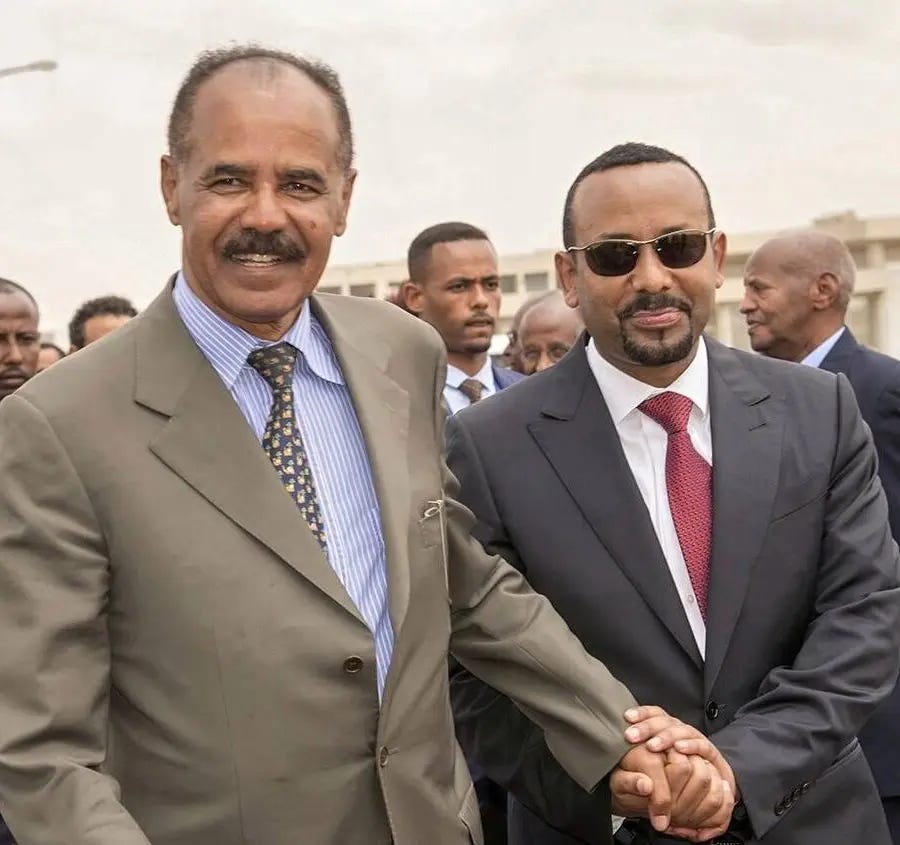Another Looming War in the Horn of Africa
Despite the rising tensions, both Ethiopia and Eritrea are economically fragile and cannot afford a prolonged conventional war. Read below
In the past few weeks, war rhetoric between Ethiopia and Eritrea has intensified. The relationship between the two countries, which had improved following the 2018 peace agreement, has deteriorated once again, returning to a state of pre-2018 hostility after Ethiopia signed a peace deal with the Tigrayan rebels in 2022.
Last year, Eritrea hosted a tripartite anti-Ethiopian war bloc in Asmara. Following Ethiopia’s controversial Memorandum of Understanding (MoU) with Somaliland, Egypt, Eritrea, and Somalia formed an alliance aimed at curbing Ethiopia’s regional ambitions.
Shifting Alliances and Regional Implications
Following the Ankara Agreement, Ethiopia and Somalia normalized relations and announced joint economic and security projects. This development weakened Asmara’s alliance, as Somalia shifted its position in favor of Ethiopia.
However, Ethiopia remains wary of Asmara’s role as a hub for adversarial activities aimed at weakening the country. It is no secret that successive Ethiopian regimes have sought to remove President Isaias Afwerki from power and end Eritrea’s long-standing hostile stance towards Ethiopia.
Eritrea, which gained independence from Ethiopia in 1993, once aimed to become an economic powerhouse in the region. Its strategy was to leverage Ethiopia’s natural resources and large market to build its economy. However, Ethiopia blocked Eritrea’s economic ambitions, leading to Asmara’s current state of economic hardship, heavy militarization, and authoritarian rule. Despite its challenges, Eritrea continues to seek influence over Ethiopia’s economic and political future, but resistance from Addis Ababa remains strong.
Ethiopia’s Red Sea Aspirations
Ethiopia, on the other hand, has renewed its push for Red Sea access. The current Ethiopian administration believes the country was unfairly deprived of its natural sea outlet following Eritrea’s independence in 1993. Ethiopia asserts its right to secure port access, even hinting that a forceful takeover could be an option.
Beyond these geopolitical tensions, Ethiopia and Eritrea share deep historical and cultural ties.
War Preparations and Strategic Calculations
Unofficial sources indicate that both nations are preparing for war, with heightened rhetoric from political and military leaders. If conflict erupts, Ethiopia’s primary objectives would likely include:
Capturing the Port of Assab (which was Ethiopia’s primary seaport before Eritrean independence).
Regime change in Asmara, a goal that would be complex and far-reaching.
Ethiopia may seek foreign financial and military support, particularly from countries with vested interests in the Red Sea region.
On the other hand, Asmara’s most effective countermeasure would be to exploit Ethiopia’s internal conflicts, potentially supporting rebel groups in the Amhara, Oromia, and Tigray regions. Egypt, which has long had strained relations with Ethiopia over Nile water disputes, is also highly interested in the situation. Egypt’s foreign minister has already arrived in Asmara, with a second round of high-level consultations scheduled in Cairo.
Economic and Military Constraints
Despite the rising tensions, both Ethiopia and Eritrea are economically fragile and cannot afford a prolonged conventional war. Both leaderships understand their vulnerabilities and limitations, making full-scale conflict a high-risk scenario for both nations.
wazemaradio@gmail.com




